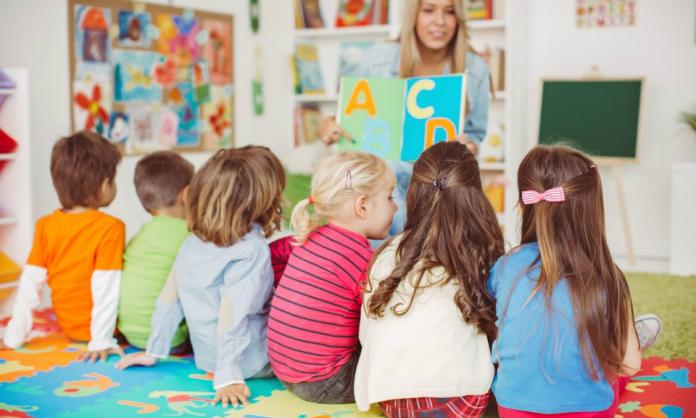Like George Costanza in the 1990s sitcom Seinfeld, the Morrison government is finding that doing the opposite of its inclinations leads to a level of popularity and success to which it is wholly unaccustomed.
Measures lampooned as a “fast track to a socialist, if not communist, economy” just one short year ago are today winning policy announcements. Not only that, they are vital to prevent the obliteration of entire industries and to stop the capitalist system itself entering a death spiral.
It is awkward, to say the least, for a government that has prided itself on standing against “unfunded empathy”, championed the wisdom of the market and advocated for minimal government involvement in service provision now to be resorting to “communist” measures to save capitalism. But resorting to them it is. And in this strange new world, the Bible-bashing reactionary Morrison has become the unlikely midwife of a reform that has been an aspiration of women’s liberationists for many decades: free child care.
The announcement of $1.6 billion to provide working parents with child care at no cost for the duration of the pandemic will be music to the ears of parents facing the challenge of working from home while also having children to entertain or educate. And it will mean those who pull their children out of care – because they’ve lost their job or in order to be socially responsible – won’t lose their place because they can’t afford to continue paying the fees. It may well also establish an expectation that will be hard to reverse, potentially resulting in lasting benefits for working parents.
Of course, none of this is the primary motivation of Morrison or education minister Dan Tehan. Their main concern is to prevent a multi-billion-dollar industry from collapsing due to plummeting enrolments. Many parents have withdrawn children either because they have lost their jobs and therefore no longer qualify for subsidised care, or because they have taken the government’s health advice seriously and concluded that large numbers of children and staff spending up to 11 hours a day in a confined space during a pandemic is a bad idea. The only option to ensure these centres still exist on the other side of the pandemic – like with so many other industries – is massive government handouts, which the Morrison government is more than willing to provide.
The government is also keen to ensure that the pandemic has as little impact on the economy, by which is meant the continued generation of profits, as possible. Without schools and childcare centres remaining open, workers can’t continue to work and keep the capitalist class afloat. Nearly 1 million households with working parents depend on child care to stay in the workforce, and Morrison is not willing to jeopardise that, whatever the risk to public health.
So he is resorting to a nationalisation of sorts: directing childcare centres to provide a service regardless of whether it’s profitable, with the government picking up the bill. Just as during previous existential capitalist crises, the state is subordinating industry to its will in order to pursue a higher purpose: preventing the destruction of capitalism.
In order not to break totally from neoliberal orthodoxy, the government is avoiding becoming a direct child care provider. But as a large, controlling customer, the same sort of outcome is achieved. Importantly, and what enables Morrison to sleep at night, the profits continue to flow to private operators.
This bizarre situation reinforces that the most rational method of child care provision is one not directed by the market or run for profit, but one that is publicly funded, carefully planned according to community need and run in the best interests of children and parents. This needs to be demanded now more than ever, along with higher wages for early childhood educators and better job security, none of which the government’s plan guarantees.
The government’s measures may well save the industry. But it could turn out to be a pyrrhic victory, further discrediting a key tenet of neoliberalism: that those who access social services are the main beneficiaries and consequently should bear the cost. This user-pays logic has been applied to education, child care, transport, utilities, roads and many other formerly publicly run or owned services for more than four decades. The result it that workers pay for, or at least heavily subsidise, the cost of services that the capitalist class requires, meaning considerable savings for bosses and government.
But when it has come to the crunch – as it has with the COVID-19 crisis – the government has shown through its actions that the corporations relying on a steady supply of labour need services like child care the most. When parents won’t pay, their representatives in parliament step in to maintain this vital prop of the system. It is hard to see how this reality, now exposed, can be successfully obscured again.
The economic and political crisis brought on by COVID-19 is changing everything, not least the way we collectively understand our individual roles in the economy. The work done by politicians and management consultants over decades to encourage us to identify primarily as consumers of goods and services in a private marketplace is unravelling. And the mechanisms we were supposed to put our faith in – the market for matching consumers with good and services, the for-profit model leading to better and more reliable care – have been exposed as a fraud.
Social services like child care exist so that we can continue the “essential work” of keeping the economy ticking over, a process in which the government and bosses are the primary beneficiaries. “Snapping back” from this reality check is not likely to be as easy as Morrison thinks.









